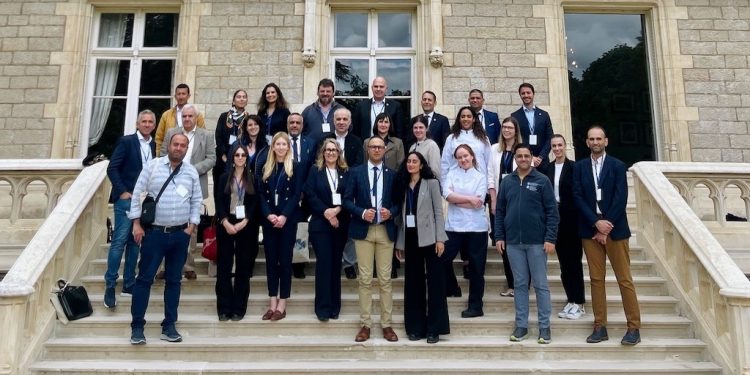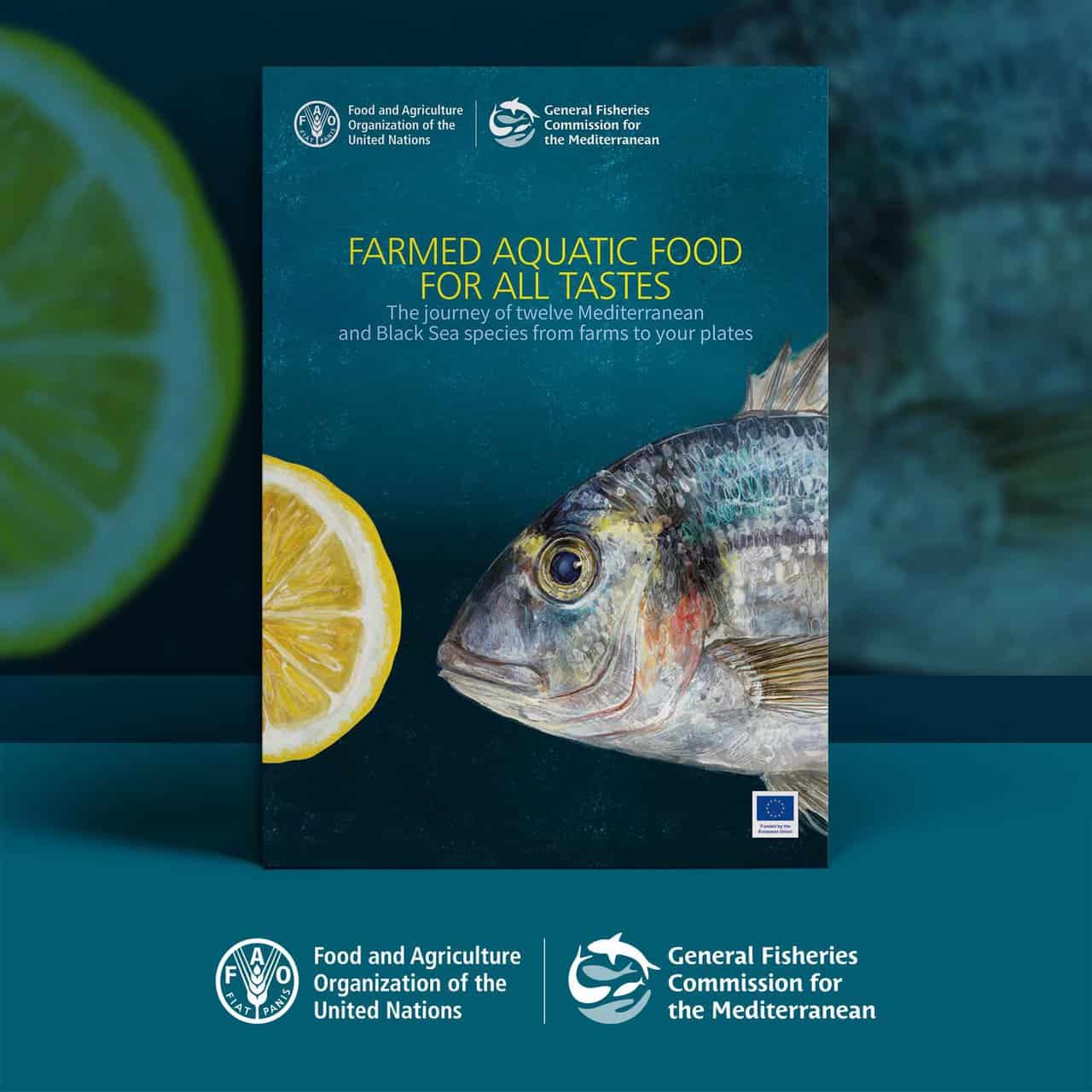A workshop promoting the social acceptability of aquaculture in the Mediterranean and the Black Sea and showcasing the gastronomic potential of farmed aquatic species has taken place in Lyon. Jointly organised by the General Fisheries Commission for the Mediterranean (GFCM) of the FAO and the Institut Lyfe Research and Innovation Center (formerly Institut Paul Bocuse Research Center), it marked the launch of the GFCM’s latest publication.
This publication, a cookbook titled Farmed aquatic food for all tastes: the journey of twelve Mediterranean and Black Sea species from farms to your plates, guides readers through the discovery of the Mediterranean and Black Sea aquaculture sector, highlighting its benefits and debunking myths.
It showcases the culinary traditions, recipes and gastronomic value of twelve iconic farmed species, each one chosen for its popularity, history, importance and potential in the region. Each chapter pairs the story of a successful, pioneering aquaculture producer making waves in the region with an enticing recipe presented by a young chef from Institut Lyfe.
‘By showcasing the efforts and dedication put into producing healthy and sustainable aquatic food for all tastes and budgets and promoting the participation of responsible young producers, entrepreneurs and chefs in this journey from aquaculture farm to plate, the GFCM aims to open up to the consumers of today and tomorrow,’ said GFCM Executive Secretary Miguel Bernal.
The workshop began with a technical session, gathering aquaculture stakeholders to discuss how best to promote the social acceptability of the sector in the Mediterranean and Black Sea region. The publication was then presented, followed by panel discussions among producers and chefs, who together highlighted challenges and potential solutions for enhancing the social acceptability of the sector. The event culminated in a cooking demonstration, featuring one of the species from the publication.
‘This project is a wonderful opportunity to profit from culinary expertise towards the promotion of farmed aquatic foods of the Mediterranean and the Black Sea through tasty recipes and chef’s tips and share them with a variety of audiences. It is also a great example of collaborative work where young talents have been able to express themselves within a multidisciplinary and multicultural team. Congratulations to all and enjoy the tasting,’ said Agnès Giboreau, Director of the Institut Lyfe Research and Innovation Center.
Across the Mediterranean and Black Sea region, 35, 000 farms are engaged in aquatic food farming operations. The aquaculture sector is active and growing and employs more than 500 000 people in the area, either directly or indirectly. It plays an important role in offering a source of employment and economic growth and in increasing aquatic food production without exceeding the natural productivity of wild fish stocks.
‘We are working to transform food systems according to the needs of consumers. In the face of challenges, our main focus is to support food security by keeping our products affordable so local consumers are able to easily access healthy and sustainably produced proteins. In this respect, we also want to promote, in collaboration with the authorities, new farmed aquatic species that are less known to the public,’ said Massad Ejbeh, general manager of Aquafarm in Lebanon.










